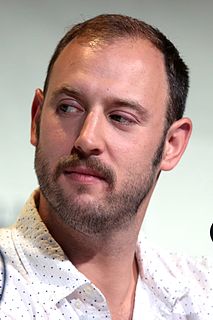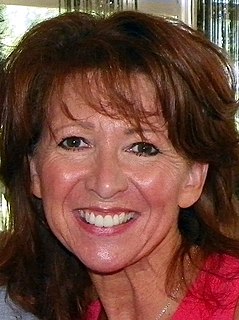Ein Zitat von David Fincher
Wenn Sie die guten Bewertungen lesen, müssen Sie auch die schlechten Bewertungen lesen. Ich stelle es mir so vor, als wäre man ein Quarterback: Man bekommt viel zu viel Vorwurf, wenn es schlecht läuft, und viel zu viel Anerkennung, wenn es gut läuft.
Verwandte Zitate
Jedes Jahr sage ich mir, dass ich keine Rezensionen lesen werde, und dann tue ich es. Wir sind alle Menschen und wenn ich etwas Negatives lese, tut es weh. Ich denke, wenn man es schreibt, ist das Teil des Spiels, man wird ein paar gute und ein paar schlechte Kritiken bekommen, und so ist es. Ich schreibe nicht für die Rezensionen.
Jedes Jahr sage ich mir, dass ich keine Rezensionen lesen werde, und dann tue ich es. Wir sind alle Menschen und wenn ich etwas Negatives lese, tut es weh. Ich denke, wenn man es schreibt, ist das Teil des Spiels, man wird ein paar gute und ein paar schlechte Kritiken bekommen, und so ist es. Ich schreibe nicht für die Rezensionen.
Ich habe immer alle meine Rezensionen gelesen, sowohl die schlechten als auch die guten (obwohl man sich viel mehr an die schlechten als an die guten erinnert!). Ich bin einfach zu neugierig, wie es beim Publikum ankommt, und ich habe ein dickes Fell, um mit den weniger gemeinnützigen Bewertungen klarzukommen.
Ich lese keine Rezensionen. Einfach weil das etwas ist, was direkt mit meinem Job zusammenhängt. Ich mache das, weil ich es liebe, nicht weil ich unbedingt nach Anerkennung oder ähnlichem suche. Meiner Meinung nach kann das Lesen von Rezensionen – ob gut oder schlecht – die Person nur dazu zwingen, sich von der Realität ihrer beruflichen Tätigkeit zu lösen. Deshalb lese ich keine Rezensionen.
Von schlechten Büchern kann man nie zu wenig und von guten Büchern nicht zu viel lesen: Schlechte Bücher sind intellektuelles Gift; sie zerstören den Geist. Um das Gute zu lesen, muss man es sich zur Bedingung machen, niemals das Schlechte zu lesen; denn das Leben ist kurz und sowohl Zeit als auch Kraft begrenzt.
Autoren sind komisch, wenn es um Rezensionen geht: Wenn sie eine gute bekommen, ignorieren sie sie – aber wenn sie eine schlechte bekommen, vergessen sie sie nie. Bei jedem Autor, den ich kenne, geht es genauso: Man bekommt hundert gute Rezensionen und eine schlechte, und man erinnert sich nur an die schlechten. Jahrelang fantasieren Sie über den Rezensenten, dem Ihr Buch nicht gefallen hat; Sie stellen sich ihn als Idioten vor, als Frauenschläger, als echten Oger. Und inzwischen hat der Rezensent das Ganze völlig vergessen. Aber zwanzig Jahre später erinnert sich der Autor noch immer an diese eine schlechte Rezension.
Früher habe ich Rezensionen gelesen – ich habe viele davon gelesen, als ich „Borgen“ gemacht habe, aber die Sache ist, die Leute waren so hart, dass ich mit meiner Frau darüber gesprochen habe und gesagt habe, das sei zu hart – die Leute sind es auch persönlich und meiner Meinung nach zu idiotisch, um es zu verstehen.





































